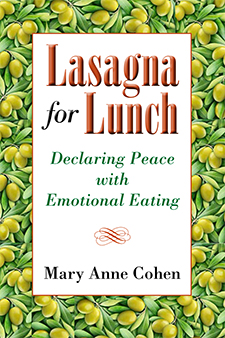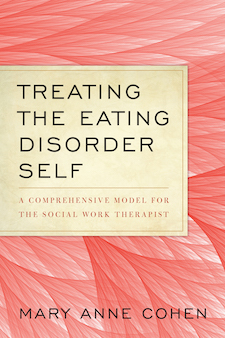Sexual Abuse and Eating Disorders (with a focus on men but applicable to all)
What is the connection between sexual abuse and developing an eating disorder? Abuse shatters the sacred innocence of the child and can become a primary trigger of an eating disorder. The victim of sexual abuse becomes plagued with confusion, guilt, shame, fear, anxiety, self-punishment, and rage. The person seeks the soothing comfort, protection, and anesthesia that food offers. Food, after all, is the most available, legal, socially sanctioned, cheapest mood altering drug on the market! And bingeing, purging, starving, and chronic dieting are mood altering behaviors that help detour, divert, and distract a person from inner pain.
Barry (not his real name) describes, “My father’s best friend molested me in our garage starting when I was seven. I was filled with such anxiety that I began gorging on everything that wasn’t tied down. I gained 30 pounds by the time I was 11, and my mother attributed this to too much pizza at the school cafeteria.”
Mitchell was abused by his older step-brother who said it was a game of “horsey” and would penetrate him from behind. “Overeating and laxatives became my way to rid myself of the pain and confusion. I realized I was trying to evacuate my brother out of my body through those laxatives.”
Donald described shamefully, “After my parents divorced, my mother would get drunk and dance around the house in her nightgown. She scared me, but the worst part was I also got turned on. To try and get control I began starving myself and developed anorexia. Through therapy, I now understand how I was trying to starve my horrible feelings out of myself. I never knew any other boy this happened to. What kind of family do I come from? There must be something wrong with us. And with me. I felt I didn’t even deserve to eat.”
Abuse violates the boundaries of the self so dramatically that inner sensations of hunger, fatigue, or sexuality often become difficult to identify. People who have been sexually abused turn to food to relieve a wide range of different tension states that have nothing to do with hunger, because the betrayal they experienced has made them disoriented, confused and mistrustful about their inner perceptions.
For many survivors, trusting food is safer than trusting people. Food never abuses you, never hurts you, never rejects you, never dies. You get to say when, where, and how much. No other relationship complies with your needs so absolutely.
Eating Disorders and Self Protection
As they reach their teen or adult years, survivors often try to de-sexualize themselves. They may work to make themselves very fat or very thin in an attempt to render themselves unattractive. They hope their “armor” of fat or thinness will protect them from sexual advances or even to wipe out their own sexual feelings which feel too threatening to deal with. Survivors may not be fully aware of how they manipulate food or their bodies to make themselves feel safer. Much of this behavior occurs unconsciously, behind the scenes, until therapy or a self-help program increases the person's awareness. And, of course, manipulating your body shape is a pseudo-solution to inner problems.
Some large men (and women) survivors actually fear losing weight, because it will make them feel smaller and childlike, ushering in earlier memories of feeling defenseless that are difficult to cope with from when they were a child. Paul became anxious as he started to resolve his binge eating disorder in therapy. “Even though I’ve only lost 20 pounds, it’s triggering flashbacks of abuse with my uncle because I feel small, like the little boy I was. Although I realize this is a distortion on my part, it helps me understand why I packed on the pounds to make myself feel bigger and stronger.”
Other survivors obsessively diet, starve, or purge to make their bodies “perfect.” Striving for a perfect body is their attempt to feel more powerful, invulnerable, and in control so as not to re-experience the powerlessness they felt as children.
In addition to falling prey to eating disorders, all victims of sexual abuse are vulnerable to depression, substance abuse, post-traumatic stress disorder, and a profound mistrust of intimacy.
Sexual Abuse, Secrecy, and Emotional Eating
Sexual abuse and emotional eating contain one central element in common: secrecy. Many eating disorder patients feel guilty about the sexual abuse in their childhoods, believing they could have prevented it but chose not to because of some defect in themselves. They repress their secret and push it underground, and then distract and anesthetize themselves by secretive emotional eating.
Secrecy is intertwined with shame. Anyone who is an emotional eater as well a survivor of sexual abuse is no stranger to shame – shame about how insatiable for food and love you can feel at your core, shame about what lengths you have gone to sneak food, and shame for the secret gorging rampages or forceful purges or self-destructive starvation that can override reason.
Secrecy and shame about sexual abuse and eating disorders often cause a person to retreat in isolation. The most devastating toll of ongoing secrecy and shame is that it leads to isolation and fear of intimacy and love.
Healing from Sexual Abuse and Eating Disorders
Coming out of hiding involves reaching out to others. We cannot heal our shame/secrecy/abuse/eating disorders alone. Just as hurtful relationships were the cause of isolating with food in the first place, so supportive and loving relationships will be the medium of our healing. We must connect with other people who can validate our pain, our rejections, our hurt, and accept us for who we are. Through a support group and/or therapy, we create a “second chance” family. When we experience this new family accepting the parts of ourselves we are ashamed of, we learn to accept ourselves as well.
Consultation with an eating disorder therapist can provide strategies to break through binge eating disorder, bulimia, anorexia, chronic dieting, body image distress. We learn:
- Diets do not work but set up a vicious cycle of restriction and rebellion.
- Reclaiming our relationship with food in which we learn to trust our inner signals to eat when hungry and stop when full is key.
- Cultivating awareness of the people, places, feelings, and circumstances that cause us to turn to emotional eating can help us formulate alternative strategies.
- Behavioral techniques of journal writing, calling a friend, working out, and listening to music are self-soothing mechanisms that do not involve food.
- Depression and anxiety may have fueled an eating disorder. In some cases, medication can help.
Everyone’s healing journey is unique to them, and everyone’s healing time frame is different. The healing process begins with a willingness to reach out beyond yourself. The first step is to recount your experience to someone you trust, who can help you go through the brunt of your pain, fear, and rage as it emerges. Because the experience of sexual abuse and eating disorders is about being out of control, you need to be in a safe setting, where your feelings can reemerge and let loose. Releasing pain and guilt is not an intellectual experience, but something that comes from deep within the heart. This can be a difficult step, because exposing your emotions can leave you feeling vulnerable, as if in a reenactment of the original trauma. Finding a compassionate therapist and/or a survivor's group can support this process. The healing process emerges slowly over time. It cannot be forced.
Sometimes eating disorder patients report strong guilt for having enjoyed the sexual contact with their abuser. Binge eating, purging, or starving then becomes their ongoing self-induced punishment for this pleasure. When we abuse our bodies with food, we turn on ourselves, re-creating the original abuse. We hurt our bodies as a way to be in control of the pain that was done to us. Now we are the abuser, and there is some small measure of relief in being the one who metes out the hurt.
When we scratch the surface of the lives of these children, though, we discover that sexual abuse may have been the only real affection or caring they received. A child who is lonely or starved for affection may get pleasure from the attention, even if it is abusive. But the truth is that children are never to blame—they are always the victims. The only thing a child is guilty of is the innocent wish to be loved.
Confronting your shame, releasing your pain, and experiencing rage, guilt, and tears are part of the process of reclaiming your inner self as well as your sexual self. The need to detour your feelings through destructive eating will subside and slowly diminish when you are able to truly let yourself grieve for the little child you once were who was betrayed.
This is the deepest part of recovery. Being able to feel sorrow for yourself, to cry, to view yourself with compassion, to acknowledge the loss of your innocence, to recognize the impact the abuse has caused are all milestones on the journey. Reliving the experiences of pain can set the stage for moving forward, gradually shedding the past, and reclaiming the wholeness that is inherently your right.
Greg had worked deeply and wholeheartedly on resolving his incest issues. Binge eating had been his lifelong attempt to comfort himself, sedate himself, and nourish the little boy who had been so hurt. What made Greg’s recovery complicated was that his abusive father was also his more loving parent. Greg’s mother was cruel and critical while his father was often affectionate and supportive. Greg had to contain and "digest" the contradiction that his father was both an abuser and, at times, a loving parent. It is so much easier when experiences are black and white but – like life itself – they often are not.
Painful residue remains for Greg, at times threatening to cloud his well-being. However, he has joined a therapy program as well as creating a tiny ritual to bring himself back into loving alignment whenever memories, anger, or bitterness threaten to surge up. “I take my hand and lift it up to my lips. I kiss my own hand with great love and tenderness and softness. Through this small gesture, I then feel restored by my own self-love. This is very powerful for me,” he explained.
Greg also practiced a series of affirmations that included:
- Recovery is absolutely possible and achievable for me.
- I release and forgive myself for any responsibility I have accepted in the past for my abuse.
- My Dad (or the abuser(s) from the past) chose to hurt me. I will not continue that legacy by hurting my own self in any way (food, relationships, drinking) but instead will practice self-care.
- Offering myself daily compassion is necessary for my healing and growth.
- I commit to connecting to the child inside me today so we can play, laugh, and experience joy together.
- Feeling is healing; as I heal, I develop the ability to experience a wider range of emotions to enhance my health and connections to others.
- From Joining Forces: Empowering Male Survivors to Thrive by Dr. Howard Fradkin. Hay House, 2012.
Another cornerstone of recovery is the ability to achieve sexual intimacy with a partner. Sexual intimacy is the opposite of emotional eating. Intimacy is about surrendering, relaxing, sharing, and letting go while emotional eating is about controlling, rigidity, fear, and isolation. Our goal as therapists with eating disordered and sexually abused men is to help them re-contact their inner vigor and vitality and sink their teeth into LIFE, not into their relationship with food!
Published in MaleSurvivor.org



